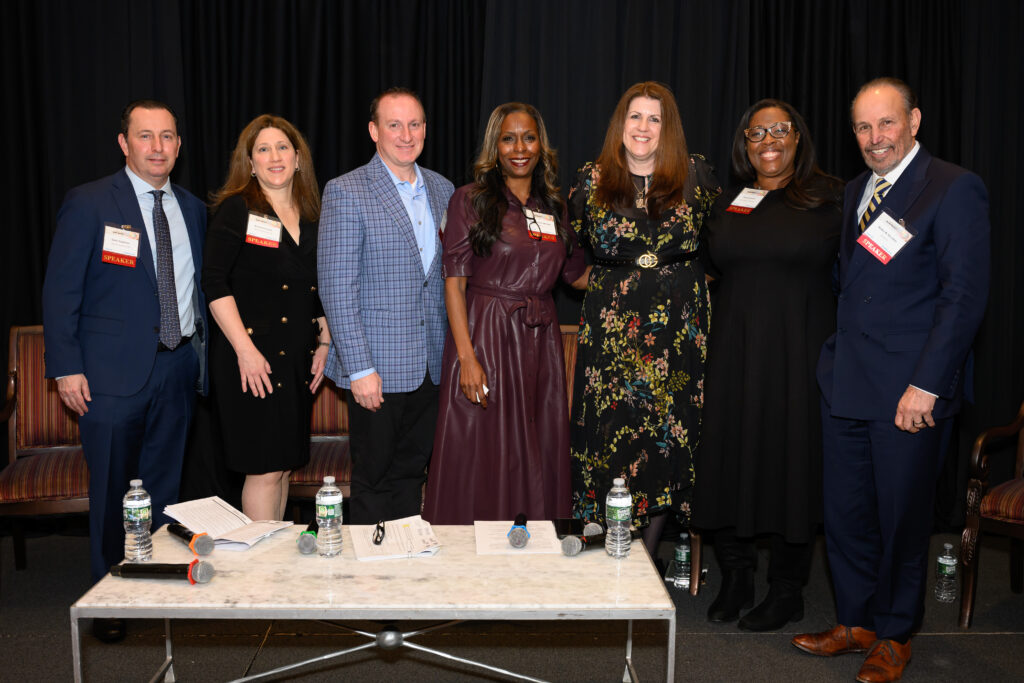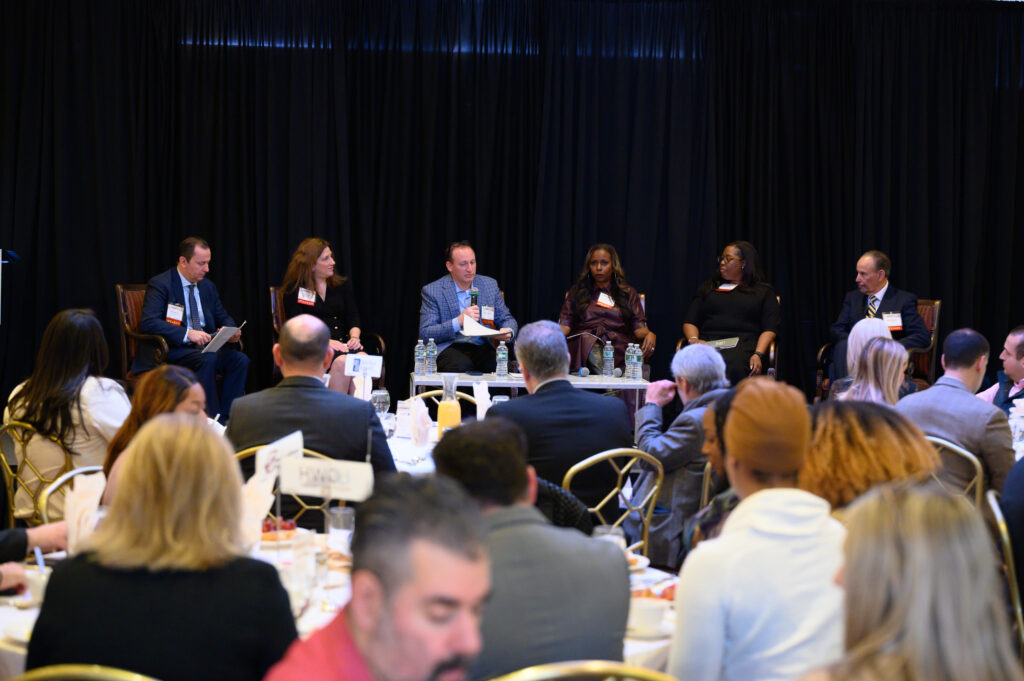Articles & Alerts
Addressing Challenges and Embracing Innovation: Key Takeaways from the “State of the Long Island Non-Profit Industry” Forum
On January 30, 2025, industry leaders gathered at the Crest Hollow Country Club in Woodbury, NY for the “State of the Long Island Non-Profit Industry” forum. Hosted by Anchin, in collaboration with Long Island Business News and Moritt Hock & Hamroff LLP, the event convened non-profit executives, financial professionals, and community stakeholders to explore the sector’s most pressing challenges and opportunities.

Key Takeaways
From financial constraints to emerging technologies, the forum shed light on pivotal issues affecting non-profits today. Here are the key takeaways:
- Financial Challenges and Government Contracts
- One of the primary concerns discussed was the financial strain imposed by government contracts.
- Delayed Payments: Non-profits face significant hurdles due to inconsistent payment schedules from county and state governments, complicating payroll management and overall financial stability.
- Contractual Limitations: Many government contracts lack provisions for cost-of-living adjustments, making it challenging for organizations to retain employees amid rising expenses.
- Administrative Constraints: Some contracts often impose strict limits on administrative expenses, forcing some non-profits to reconsider whether they can afford to accept such agreements.
- One of the primary concerns discussed was the financial strain imposed by government contracts.
- The Power Advocacy and Strategic Negotiation:
- Advocacy and negotiation play a crucial role in ensuring non-profits receive fair treatment and sustainable funding from government entities.
- Government Engagement: There’s a pressing need for non-profits to advocate for prompt payments and push for comprehensive reforms in government contracting processes.
- Strategic Negotiation: Organizations should take a proactive stance in negotiating contract terms and pushing back against stipulations that may hinder operations.
- Advocacy and negotiation play a crucial role in ensuring non-profits receive fair treatment and sustainable funding from government entities.
- Collaboration and Mergers: Strength in Unity
- With growing financial pressures, collaboration and mergers have become viable strategies for sustainability.
- Workforce Integration: Merging organizations can lead to inconsistencies in operations, benefits, and salaries. Ensuring consistency is crucial for successful integration.
- Mission-Driven Partnerships: Sharing contracts, information, and/or resources with other non-profits can enhance service delivery and maximize the ultimate goal of community impact
- Due Diligence: Before merging, organizations must conduct thorough due diligence to assess compatibility in operations, culture, and funding streams to ensure align with their missions.
- With growing financial pressures, collaboration and mergers have become viable strategies for sustainability.
- Embracing Technology and AI to Enhance Efficiency:
- Technology and artificial intelligence (AI) are transforming non-profit operations, offering both opportunities and challenges.
- Operational Efficiency: Leveraging AI and other technologies can streamline administrative processes and overall operations, but maintaining human interaction, especially in direct services, is essential.
- Fundraising and Outreach: AI can enhance fundraising efforts and social media outreach, targeting specific demographics effectively. However, content should be carefully reviewed to ensure authenticity.
- Technology and artificial intelligence (AI) are transforming non-profit operations, offering both opportunities and challenges.
- Adapting Workplace Dynamics in a Post-COVID Era:
- The pandemic has reshaped work environments, necessitating new approaches to workforce management and talent acquisition and retention.
- Hybrid Work Models: Implementing hybrid or flexible work arrangements can attract talent and boost productivity. Balancing remote work with in-person interactions is vital for brainstorming and maintaining a positive work culture.
- Policy Adaptation: Organizations must update policies to accommodate remote working while also. fostering meaningful in-person engagements for collaboration and strategic planning.
- The pandemic has reshaped work environments, necessitating new approaches to workforce management and talent acquisition and retention.
- Financial Preparedness for Uncertain Times:
- Economic Uncertainty: Due to the current economic landscape and potential regulatory changes coming from the new Administration , non-profit organizations should engage in cost-saving measures, build reserves, and understand their funding sources to maintain financial stability and resilience.
- Community Support: Establishing networks and strategic partnerships with other non-profits can facilitate effective information sharing and strategy development to help organizations address economic fluctuations and market instability.
- Prioritizing Employee Well-being and Retention
- A strong workforce is the backbone of any successful non-profit.
- Understanding Needs: Regular communication with staff to identify gaps and provide support, including professional development and mental health workshops, is crucial for retention.
- Person-Centric Services: Fostering a positive work environment by focusing on the well-being of employees will help them remain engaged and equipped to deliver high-quality services to the community.
- A strong workforce is the backbone of any successful non-profit.

The forum underscored the need for non-profits to embrace adaptability, strategic collaboration, and proactive financial planning. By leveraging technology, advocating for better contract terms, and prioritizing workforce well-being, non-profits can strengthen their impact and continue serving their communities with purpose. As the industry evolves, these insights serve as a roadmap for non-profit leaders striving to effectively manage Long Island’s increasingly complex industry landscape.